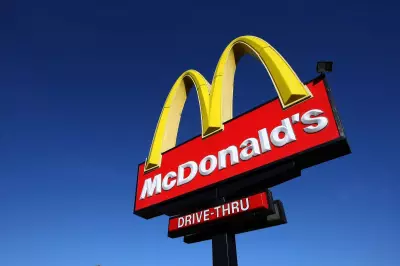
In a significant policy reversal that signals Labour's shift toward economic pragmatism, Sir Keir Starmer and Shadow Chancellor Rachel Reeves have officially abandoned plans for a mansion tax on high-value properties.
The End of a Contentious Proposal
The proposed tax, which would have targeted properties valued at over £2 million, has been a recurring feature in Labour's economic discussions for years. However, in a clear move to position the party as fiscally responsible, both frontbenchers have now confirmed the policy will not feature in their election manifesto.
Rachel Reeves stated unequivocally: "We're not going to be doing a mansion tax. We're not going to be doing any of that." This definitive statement closes the door on a policy that had been championed by previous Labour leadership but had drawn criticism from property owners and some economists.
A Strategic Shift in Economic Approach
The decision represents more than just the abandonment of a single tax proposal—it marks a fundamental repositioning of Labour's economic philosophy. The party appears to be moving away from what critics labelled as "tax-and-spend" policies toward a more centrist economic platform.
This shift comes as Labour maintains a substantial lead in opinion polls, with party strategists clearly believing that demonstrating fiscal responsibility is crucial to maintaining that advantage. The move also aligns with Starmer's broader project of distancing the current Labour leadership from the more radical economic policies associated with the Corbyn era.
Broader Implications for Labour's Tax Agenda
While the mansion tax has been scrapped, questions remain about how Labour intends to fund its spending commitments. The party has emphasised that it will not resort to major tax increases and has ruled out raising the basic or higher rates of income tax, National Insurance, or VAT.
Instead, Labour appears to be focusing on closing tax loopholes and targeting non-dom tax status as alternative revenue sources. This approach allows the party to maintain its commitment to fiscal responsibility while still addressing wealth inequality through more targeted measures.
The policy U-turn demonstrates Labour's determination to present itself as a government-in-waiting with a credible, costed economic plan that won't alarm middle-class voters or the business community.





